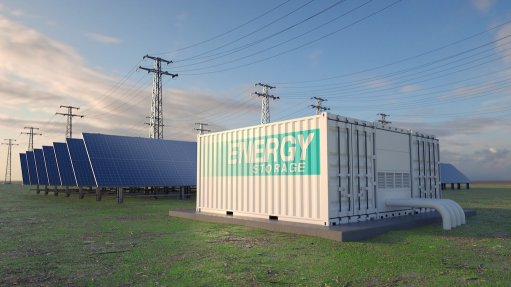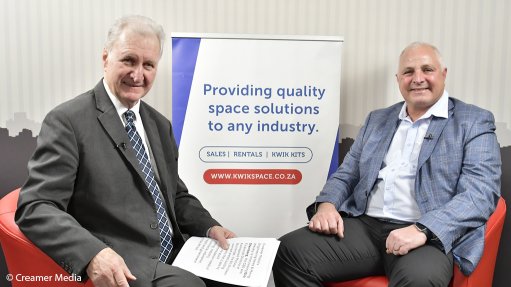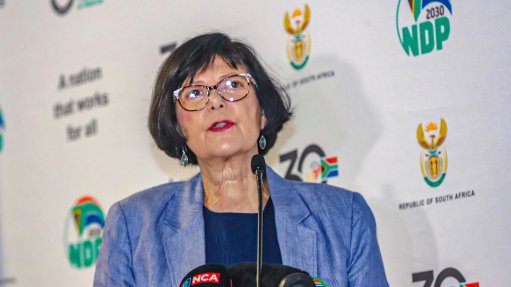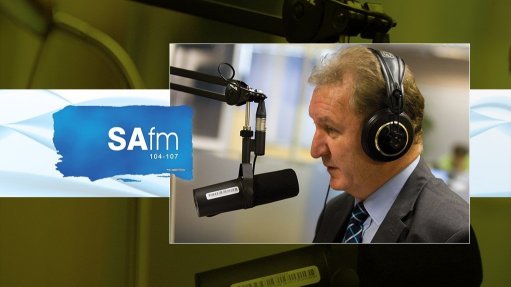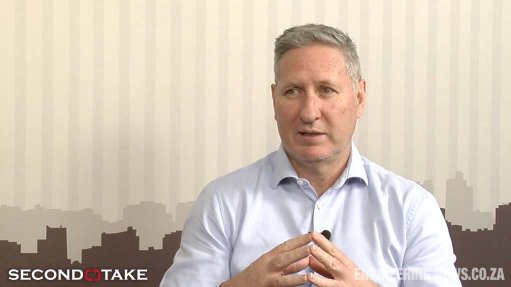Framework continues to form sector foundation


LIZEL OBERHOLZER There is an ever-increasing opportunity for private sector renewable and alternative energy projects to support energy supply
The economic opportunity represented by the continent’s need for energy makes the African energy industry an attractive prospect for foreign investment, says law firm Norton Rose Fulbright director Lizel Oberholzer.
However, she notes that to facilitate this development, the continent requires stable legal frameworks, streamlined licensing processes and reasonable regulatory requirements. “Only with certainty on the content and application of the legal system that underpins the energy sector will the sector be able to achieve its full potential.”
Sustainable energy supply for Africa’s 587-million people will require cooperation of stakeholders in the energy sector, she says, owing to Africa being home to 15% of the world’s population, but using only 3% of the world’s energy supply.
“This is changing quickly and Africa is one of the world’s fastest-growing energy users, with energy consumption per capita growth at 4.1% a year.”
She explains that, while traditional coal-based power generation will also continue as the base of the African energy economy, there is an ever-increasing opportunity for private-sector renewable- and alternative energy projects to support energy supply.
“In the medium to long term, the energy sector must continue to develop a local supply of fuel for energy generation. While oil and gas exploration in Africa is decreasing in line with global trends, the development of a local market for oil and natural gas will provide much-needed stimulation for the sector,” Oberholzer notes.
She mentions that only three new discoveries have been recorded by professional services firm PwC’s Africa Oil and Gas review for 2016/17, compared with 11 in the previous calendar year.
Oberholzer emphasises that it remains imperative for regulations to create an investor-friendly environment that protects the interests of the relevant country and its citizens. “Exploration and production activities are high risk and capital-intensive regulatory uncertainty can delay investment. It is, therefore, important for the public and private sector to meet and find a win-win solution.”
Meanwhile, she notes that the biggest potential for growth in Africa lies in the continued development of alternative forms of energy generation to support existing traditional coal-fired power generation and the development of infrastructure.
“Regulation can assist the industry by clearly indicating the roles and responsibilities of stakeholders in the sector by providing for efficient and clear regulatory requirements that can be easily understood and explained to investors,” she elaborates.
Oberholzer further mentions that well-designed regulations, which are aligned with international norms and standards, can assist the industry in apportioning the investment costs and risks associated with the development of infrastructure, and in providing international investors peace of mind to invest in Africa.
Privately produced renewable energy (through, for example, the South African Renewable Energy Independent Power Producers Procurement Programme) and the development of locally supplied natural gas-fired power plants can be incorporated into the continent’s energy mix to increase energy production while decreasing the average cost per kilowatt hour, she adds.
Further, events like the Africa Energy Indaba (AEI) create a forum where private- and public-sector participants can identify and debate challenges and opportunities in the sector, says Oberholzer.
“We trust that events, such as the AEI, can help bring thought leaders, specialists, investors and government under one roof to further find ways of unlocking opportunities in the energy sector. Unlocking these key sectors will also play a pivotal role in job creation and black industrialisation,” she concludes.
The AEI will be held at the Sandton Convention Centre, in Johannesburg, on February 20 and 21.
Comments
Press Office
Announcements
What's On
Subscribe to improve your user experience...
Option 1 (equivalent of R125 a month):
Receive a weekly copy of Creamer Media's Engineering News & Mining Weekly magazine
(print copy for those in South Africa and e-magazine for those outside of South Africa)
Receive daily email newsletters
Access to full search results
Access archive of magazine back copies
Access to Projects in Progress
Access to ONE Research Report of your choice in PDF format
Option 2 (equivalent of R375 a month):
All benefits from Option 1
PLUS
Access to Creamer Media's Research Channel Africa for ALL Research Reports, in PDF format, on various industrial and mining sectors
including Electricity; Water; Energy Transition; Hydrogen; Roads, Rail and Ports; Coal; Gold; Platinum; Battery Metals; etc.
Already a subscriber?
Forgotten your password?
Receive weekly copy of Creamer Media's Engineering News & Mining Weekly magazine (print copy for those in South Africa and e-magazine for those outside of South Africa)
➕
Recieve daily email newsletters
➕
Access to full search results
➕
Access archive of magazine back copies
➕
Access to Projects in Progress
➕
Access to ONE Research Report of your choice in PDF format
RESEARCH CHANNEL AFRICA
R4500 (equivalent of R375 a month)
SUBSCRIBEAll benefits from Option 1
➕
Access to Creamer Media's Research Channel Africa for ALL Research Reports on various industrial and mining sectors, in PDF format, including on:
Electricity
➕
Water
➕
Energy Transition
➕
Hydrogen
➕
Roads, Rail and Ports
➕
Coal
➕
Gold
➕
Platinum
➕
Battery Metals
➕
etc.
Receive all benefits from Option 1 or Option 2 delivered to numerous people at your company
➕
Multiple User names and Passwords for simultaneous log-ins
➕
Intranet integration access to all in your organisation







